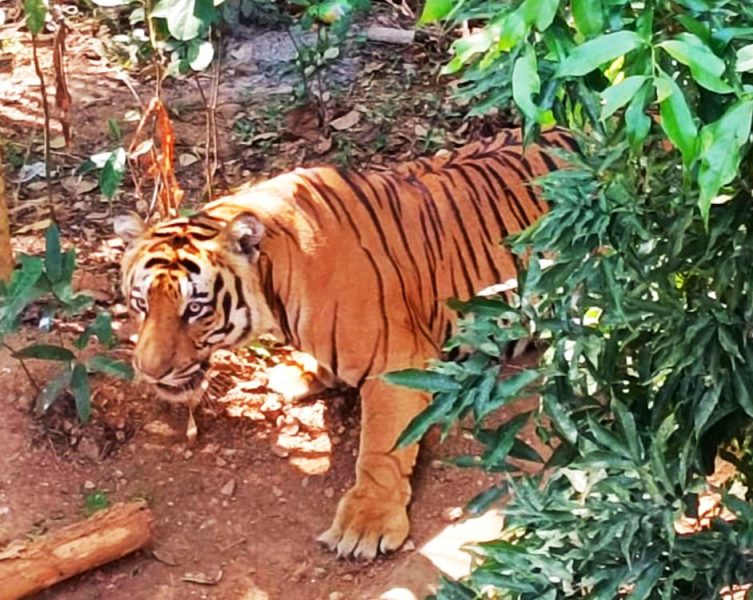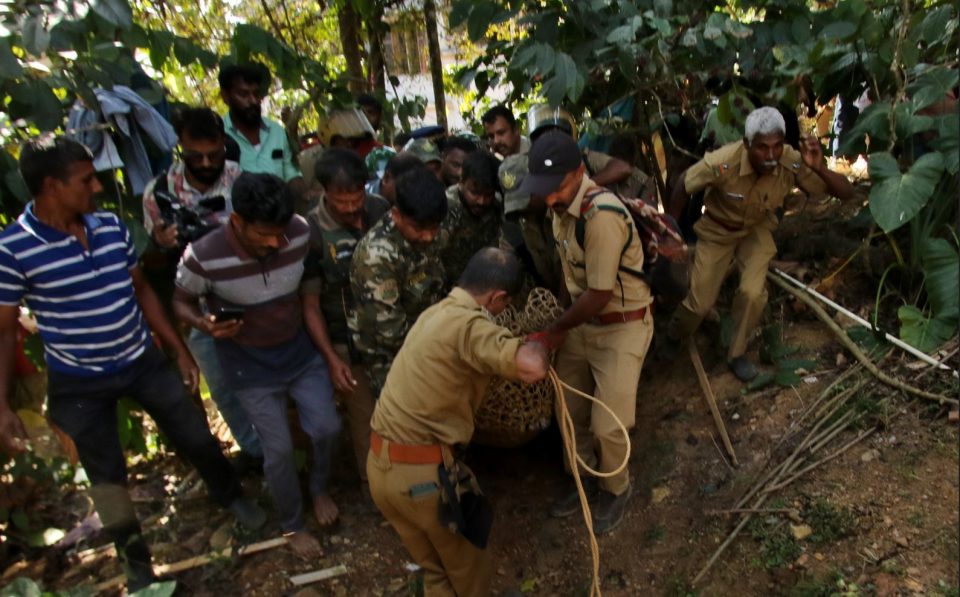
Man-animal conflict in Kerala: State may move SC with animal birth control plea

In the wake of rising human-animal conflict, the Kerala government is considering moving the Supreme Court with a plea to take birth control measures for wild animals. A similar case involving West Bengal is pending before it.
In 2014, the Supreme Court put on hold a proposal by the West Bengal government to sterilize elephants in the wild in view of frequent man-animal conflicts in the forest areas. Even though the Environment Ministry had proposed this very project with Bengal and Odisha as pilot cases, the court order remained the main impediment.
Also read: Over 1,500 people died in elephant attacks in last 3 years: Govt data
“We are contemplating the possibility of approaching the Supreme Court for animal birth control measures, as there is a stay order by the court against a similar move by the West Bengal government,” Kerala Forest Minister AK Saseendran told The Federal.
Checking elephants
“Our studies show a sharp increase in animal population that is beyond the capacity of forest areas. Our efforts to prevent animal attacks are not effective due to this. Birth control or relocation of these animals to a conducive place are options available to us. The government and the ministry are not in favour of indiscriminate culling of animals,” explained the minister.
Elephants and tigers are posing unprecedented threats to human life in towns and villages adjacent to the forests in Kerala.
Last week, Thomas alias Salu (50), a farmer, was attacked and killed by a tiger near Mananthawady in Wayanad district. Salu, attacked near his house, succumbed to a heart attack on the way to the tertiary care hospital in Kozhikode. The tiger was captured after a tranquilizer shot a couple of days later.

Also read: Kerala villages hit hard by wild boar attacks; Centre in no hurry to help
Farmers’ anger
Local people and some farmer groups blamed the Forest Department for not heeding their demands regarding continued animal attacks.
“This is a murder, and the first accused is the Forest Department, which did nothing to stop the tiger from entering the human habitat despite a spike in tiger sightings and attacks,” fumed Alex Ozhukayi, convener of the Kerala Independent Farmers’ Association.
A shutdown was observed across the eight local bodies in Mananthawady taluk on Friday, prompting the government to offer Thomas’ family Rs 10 lakh in compensation and a job for his next of kin.
The farmer’s death came close on the heels of an elephant rampage in Sultan Bthery in Wayanad district. The elephant, codenamed Pandalur Makhana or PM2, was later captured from the Kuppady forest in the Wayanad wildlife sanctuary and relocated to Muthanga.
Another elephant, PT 7 (Palakkad Tusker 7), is still at large, spreading fear in the residential areas of Dhoni in Palakkad district.
Sterilize elephants?
The minister’s first statement was in the light of the protests in Wayanad district. But the idea of sterilization of the wild animals has not gone well with veterinary experts.
Also read: Leopard count rises, but man-animal conflict remains a worry in TN
“Sterilization is not practical in elephants. As the elephant is testiconda, that is, has its testes inside the abdomen with no scrotum present, sterilization cannot be done without surgical intervention, which is near-impossible in a wild environment. The only feasible method of contraception in female elephants is darting them with immune-contraceptives, though it is not always practical,” said veterinarian Dr Giridas P Balan, a member of the Animal Welfare Board in Kerala.
Immuno-contraception is a technique of contraception that induces hormonal changes in female elephants. Asian elephants have not yet been subjected to this technique, but the model has been quite successful in African elephants, said an official with the Environment Department. No concrete solution apart from this has been offered to the government yet.
“The Wildlife Department has the responsibility to conduct proper analysis of forests to find out the root cause of the issue,” says Hareesh Vasudevan, a lawyer and environmental activist.
“The state Wildlife Board is a statutory body constituted to advise the state in matters like this. After its constitution in 2021, not even a single meeting was called in the state to address the issue of human-animal conflict,” he alleged.
“Change in behaviour of wild animals, their numbers, habitat pattern, reason for long-range migration, have to be taken into account and studied scientifically to find solutions,” added Vasudevan.
Also read: Greens against killing stray tiger, suggest rehab instead
Turn elephants domestic
“As far as elephants are concerned, capturing and taming them into domestic animals is one solution. The laws need to be amended to facilitate the trading of elephants. On the other hand, tigers could be kept in a wild habitat with limited freedom,” said Dr Balan.
According to the Kerala Forest Department, in 2021-22, 144 compensation cases were filed for human casualties due to animal attacks, including snake bites. It is the highest in the last five years. In 2020-21, the number was 118.
The total number of claims for human injury in 2021-22 was 1,416 as opposed to 1,298 in 2020-21, showing a definite spike in the number of cases.


